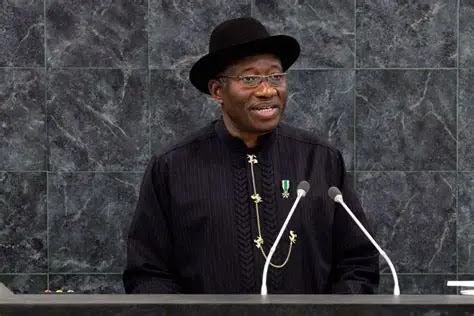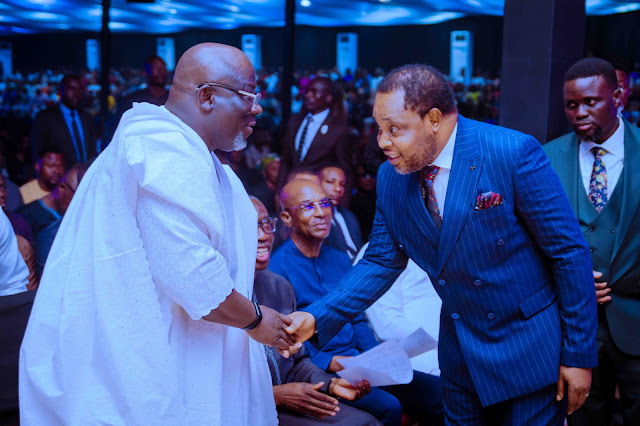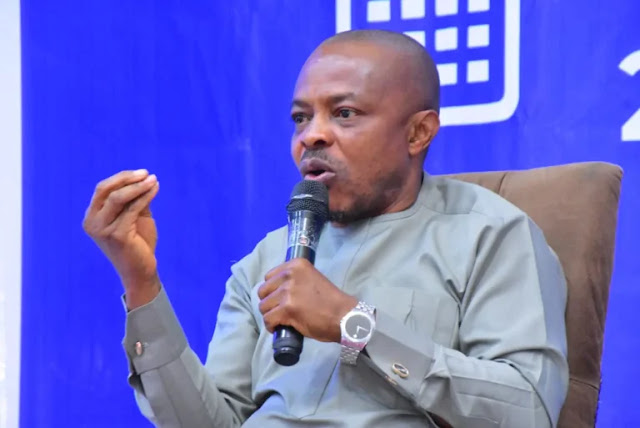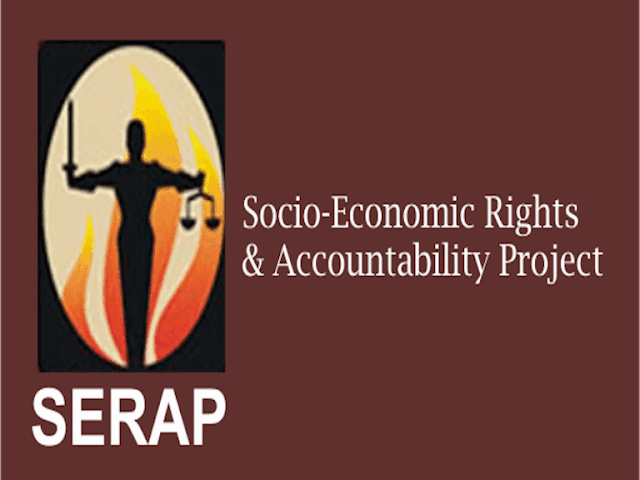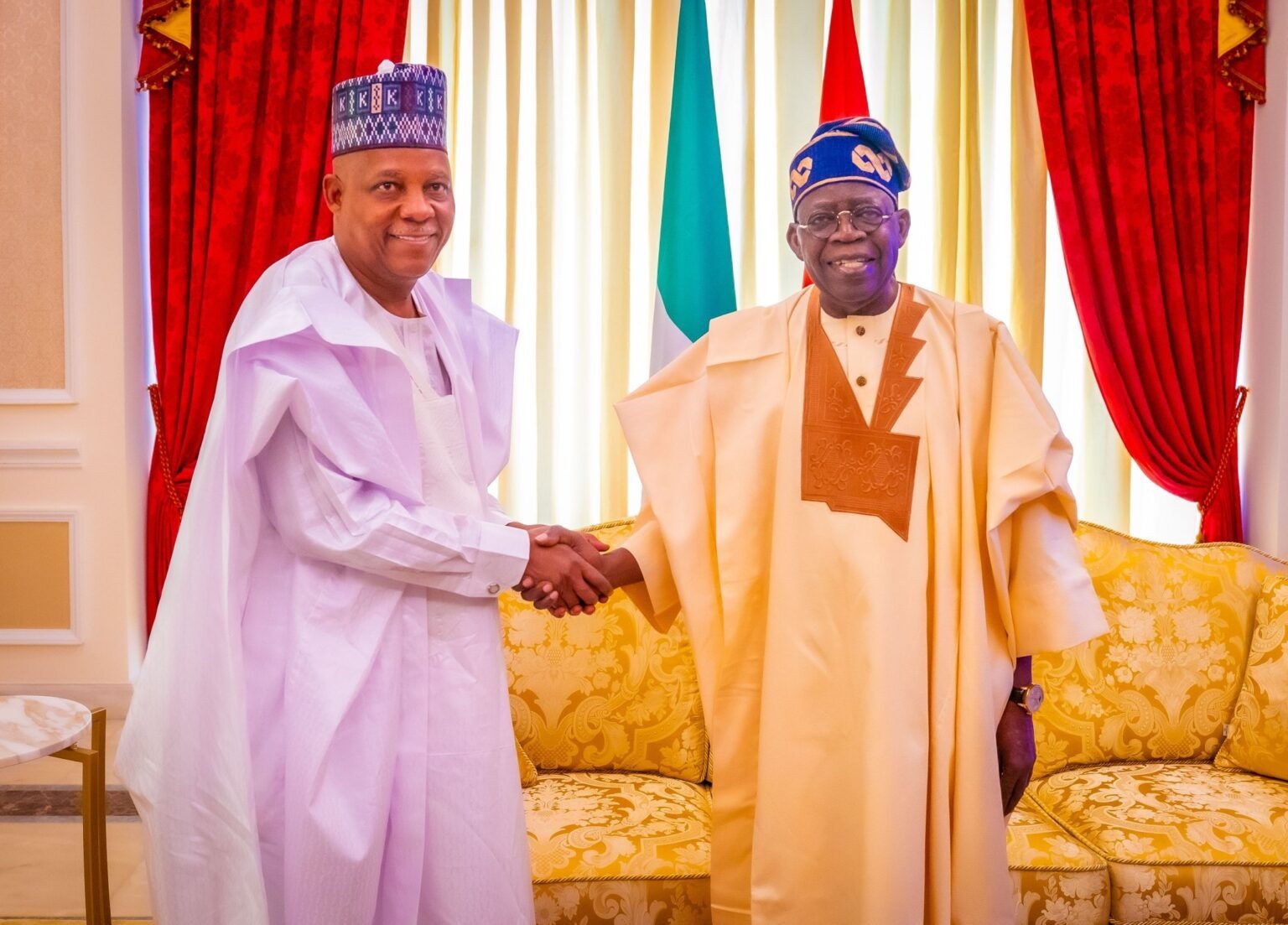In a development that has reignited discussions on Nigeria’s constitutional framework, electoral eligibility, and the enduring legacy of one of the nation’s most debated leaders, court documents from a Federal High Court in Yenagoa have unequivocally confirmed that former President Goodluck Ebele Azikiwe Jonathan remains eligible to contest the 2027 presidential election. This ruling, delivered on May 27, 2022, by Justice Isa H. Dashen, dismantles a long-standing legal hurdle posed by Section 137(3) of the 1999 Constitution (as amended), which limits individuals to a maximum of two terms as president. The decision, rooted in principles of non-retroactivity and constitutional interpretation, has opened the door for Jonathan—a figure who has loomed large in Nigerian politics despite his post-presidency reticence—to potentially re-enter the fray, stirring a mix of excitement, skepticism, and strategic maneuvering within political circles.
This article delves deeply into the intricacies of the court documents, the historical context of the case, the arguments presented by all parties, and the broader socio-political ramifications for Nigeria’s democratic landscape. As the nation approaches the 2027 general elections amid economic challenges, security concerns, and calls for renewed leadership, Jonathan’s eligibility could reshape alliances, party dynamics, and voter sentiments. With PDP leaders subtly encouraging his return and critics warning of a return to past controversies, the ruling transcends mere legal technicalities, symbolizing the fluidity of political power in Africa’s most populous nation.
The Genesis of the Legal Battle: A Challenge to Jonathan’s Future Aspirations
The origins of this pivotal case trace back to a deliberate attempt by political opponents to preemptively disqualify Jonathan from any future presidential bids. Filed in the Federal High Court in Yenagoa, Bayelsa State—Jonathan’s home state—the suit was instituted by two self-proclaimed members of the All Progressives Congress (APC): Andy Solomon and Ibidiye Abraham. These plaintiffs, positioning themselves as vigilant guardians of constitutional order, sought a declaration that Jonathan was ineligible to contest any future elections under Section 137(3) of the 1999 Constitution. Their argument hinged on interpreting Jonathan’s ascension to the presidency in 2010 and his subsequent election in 2011 as constituting two full terms, thereby exhausting his constitutional limit even before the amendment’s enactment.
Jonathan, listed as the first defendant, mounted a robust defense, arguing that his path to the presidency was unique and did not trigger the two-term restriction. The APC and the Independent National Electoral Commission (INEC), named as second and third defendants respectively, were served with the originating processes but notably failed to enter appearances or file any responses. This procedural lapse, as highlighted by Justice Dashen in his judgment, effectively amounted to a tacit admission of the plaintiffs’ lack of merit in their claims. The court’s observation on this point underscores a critical aspect of Nigerian jurisprudence: the presumption of truth in uncontested facts, drawing from established precedents such as OYEYIPO VS OYINLOYE (1987) I NWLR (Part 50) 350, where the Supreme Court held that a defendant’s failure to file a counter-affidavit implies acceptance of the originating summons’ facts.
The case’s history is intertwined with Nigeria’s turbulent political transitions. Jonathan’s presidency began under extraordinary circumstances on May 6, 2010, following the death of President Umaru Musa Yar’Adua. As vice president, Jonathan was sworn in to complete Yar’Adua’s unexpired term, a move that was not through a popular election but by constitutional succession under Section 144 of the 1999 Constitution. This interim role lasted until 2011, when Jonathan contested and won the presidential election against Muhammadu Buhari, serving a full four-year term until 2015. His defeat in the 2015 election to Buhari marked a historic peaceful transfer of power, earning him international acclaim for conceding defeat before the official results were announced. However, whispers of a potential comeback persisted, fueled by his enduring popularity in the Niger Delta and among certain PDP factions.
The plaintiffs’ suit, therefore, represented a preemptive strike, aiming to invoke the 2018 constitutional amendment retroactively. The Fourth Alteration to the 1999 Constitution, assented to by then-President Muhammadu Buhari on June 7, 2018, introduced Section 137(3), which states: “A person who has been sworn in as President shall not be qualified for election to that office on any other occasion.” This provision was intended to codify the two-term limit already practiced under the original constitution’s Section 135(2), but its timing—post-Jonathan’s tenure—became the crux of the legal contention. Jonathan’s counter-affidavit, supported by legal precedents like the Court of Appeal’s decision in CYRIACUS NJOKU VS GOODLUCK EBELE JONATHAN (2015) LPELR-24496, asserted that his 2010 swearing-in was merely to complete an unexpired term and did not count as an “election” under Section 137(1)(b). Thus, he argued, he had only been elected once, preserving his eligibility for another term.
Dissecting the Court Documents: Justice Dashen’s Meticulous Judgment
At the heart of this narrative are the court documents themselves, which provide a masterclass in constitutional interpretation. Justice Isa H. Dashen’s 2022 ruling spans several pages of detailed analysis, methodically addressing the plaintiffs’ claims while reinforcing Jonathan’s position through logical juxtaposition of timelines and legal principles. The judgment begins by acknowledging the service of processes on all defendants and laments the APC and INEC’s non-participation, stating: “As earlier stated, both 2nd and 3rd Defendants (APC and INEC) did not file any processes in response or reaction thereto despite service of the Originating process on them.” This observation sets the tone, invoking the principle from FUTMINA & ORS VS OLUTAYO (2017) LPELR-43827 (SC) and CHEVRON (NIG) LTD VS IMO STATE HOUSE OF ASSEMBLY AND ORS (2016) LPELR-41563 (CA) that unchallenged facts must be deemed admitted.
Delving into the substantive issues, Justice Dashen focused on the non-retroactive nature of constitutional amendments. He noted that Jonathan’s rights accrued prior to the 2018 alteration, as his last oath of office was in 2011, well before June 7, 2018. The judge emphasized: “Having carefully considered the arguments of the parties, I am of the view that the determination of the application or otherwise of the provisions of sub-section (3) of Section 137 of the Constitution to the 1st Defendant lies on the juxtaposition of the date when the 1st Defendant claims to have acquired his present right to be sworn-in as President and the date on which sub-section (3) of Section 137 of the Constitution took effect.” This temporal analysis is pivotal, aligning with Nigeria’s constitutional doctrine that laws do not apply retrospectively unless explicitly stated, a principle enshrined in Section 4(9) of the 1999 Constitution.
The documents also reference Jonathan’s defense in detail. His counsel argued that the 2010 ascension was not an elective office but a completion of Yar’Adua’s term, citing the 2015 Court of Appeal ruling that clarified such successions do not count toward term limits. Furthermore, the judgment dismisses the plaintiffs’ attempt to aggregate the 2010-2011 period as two terms, reinforcing that only elected terms trigger the limit. The court’s holistic review of Section 137—encompassing subsections on age, citizenship, and prior convictions—further bolsters the ruling, portraying Jonathan as unencumbered by any disqualifying factors.
These documents, now public and widely circulated, not only vindicate Jonathan but also serve as a precedent for future eligibility disputes. They highlight the judiciary’s role in safeguarding democratic rights against partisan overreach, a theme resonant in Nigeria’s history of electoral litigations.
Goodluck Jonathan: From Humble Beginnings to Presidential Legacy
To appreciate the significance of this ruling, one must contextualize Goodluck Jonathan’s remarkable journey. Born on November 20, 1957, in Otuoke, Bayelsa State, Jonathan rose from a modest background as the son of a canoe carver to become Nigeria’s president. His early career as an education officer and environmental protection officer evolved into politics when he was elected deputy governor of Bayelsa in 1999 under the Peoples Democratic Party (PDP). In 2007, he ascended to vice president alongside Yar’Adua, only to become acting president in 2010 amid Yar’Adua’s illness.
Jonathan’s full presidency from 2011 to 2015 was a period of profound transformation and turbulence. Economically, his administration witnessed Nigeria’s rebasing of GDP in 2014, catapulting the country to Africa’s largest economy, surpassing South Africa. Initiatives like the Agricultural Transformation Agenda boosted rice production and reduced food imports, while the power sector privatization added thousands of megawatts to the national grid. On the international stage, Jonathan strengthened ties with the West, securing investments and advocating for African development at forums like the African Union.
However, his tenure was marred by controversies. The 2014 Chibok schoolgirls’ abduction by Boko Haram exposed security lapses, fueling public outrage and contributing to his 2015 defeat. Corruption allegations, including probes into arms procurement deals, lingered post-tenure, though Jonathan has consistently denied wrongdoing. His peaceful concession in 2015, famously stating, “No body’s time on Earth is forever; my time is up,” earned him the sobriquet “the man who saved Nigerian democracy.” Post-presidency, Jonathan has focused on philanthropy through the Goodluck Jonathan Foundation, mediating in African conflicts like those in South Sudan and Guinea-Bissau, and occasionally commenting on national issues without overt political ambition.
This ruling revives speculation about his return, with PDP stalwarts viewing him as a unifying figure capable of reclaiming the party’s dominance. Yet, at 69 years old by 2027, questions about his energy and strategy persist.
Historical Precedents and Constitutional Evolution in Nigeria
The Jonathan case cannot be isolated from Nigeria’s constitutional history, which has evolved through military decrees and civilian amendments to balance power and prevent authoritarianism. The 1999 Constitution, promulgated under General Abdulsalami Abubakar, drew from the 1979 version but introduced term limits implicitly through Section 135(2), allowing only two consecutive four-year terms. The Fourth Alteration in 2018 formalized this in Section 137(3), responding to debates over indefinite rule, as seen in attempts by past leaders like Olusegun Obasanjo to seek a third term in 2006.
Precedents abound: In Buhari vs. INEC (2008), the Supreme Court clarified eligibility criteria, emphasizing strict interpretation. Similarly, the Njoku vs. Jonathan (2015) ruling directly supports the current decision by distinguishing succession from election. These cases illustrate the judiciary’s role as the arbiter of electoral disputes, with over 1,000 election-related petitions filed in the 2019 and 2023 cycles alone, according to INEC data.
The non-retroactivity principle, central to Dashen’s judgment, echoes global norms, such as the U.S. Supreme Court’s stance in Bouie v. City of Columbia (1964) against retrospective application of laws. In Nigeria, this protects vested rights, ensuring amendments like the 2018 one do not penalize past actions. Critics, however, argue that such rulings could encourage endless litigation, as seen in the 2023 Atiku Abubakar vs. Tinubu case, where eligibility challenges delayed governance.
Political Reactions: Encouragement, Skepticism, and Strategic Calculations
The ruling has elicited a spectrum of reactions. Within the PDP, where Jonathan remains a revered elder statesman, leaders like Governor Umo Eno of Akwa Ibom and former governors have reportedly urged him to run, viewing his candidacy as a bulwark against APC’s dominance. A PDP chieftain, speaking anonymously, noted, “Jonathan’s integrity in 2015 and his development record make him the perfect candidate to reclaim the presidency.” This enthusiasm stems from the party’s internal fractures post-2023, with Atiku Abubakar’s repeated bids faltering and younger aspirants like Peter Obi shifting to the Labour Party.
Conversely, APC figures dismiss the ruling as irrelevant, with some like Senator Ali Ndume labeling Jonathan’s era as “a dark chapter of insecurity and economic mismanagement.” The plaintiffs, Solomon and Abraham, have hinted at appeals, though none materialized by September 2025. INEC’s silence post-judgment suggests acceptance, but the commission’s chairman, Mahmood Yakubu, has historically emphasized that eligibility is determined at nomination stages.
Public discourse on platforms like X (formerly Twitter) reflects division. Hashtags like #Jonathan2027 trend with supporters praising his humility, while detractors invoke #NoMoreJonathan, citing corruption probes by the Economic and Financial Crimes Commission (EFCC). Analysts like Prof. Auwalu Yadudu argue the ruling stabilizes the electoral process by clarifying ambiguities, potentially reducing pre-election suits.
Implications for the 2027 Elections: A Reshaped Political Arena
As Nigeria gears toward 2027, this ruling injects uncertainty and opportunity into the presidential race. The APC, buoyed by President Bola Tinubu’s reforms, eyes continuity, but internal rivalries—between Vice President Kashim Shettima and others—could fracture unity. For the PDP, Jonathan’s potential entry might consolidate southern votes, leveraging his Ijaw heritage and appeal in the Southwest, where he garnered support in 2011.
Economically, a Jonathan bid could revive debates on diversification, contrasting Tinubu’s market-oriented policies. Security-wise, his experience with Boko Haram might resonate amid ongoing insurgencies. However, age and health concerns, coupled with the “anyone but PDP” sentiment from 2015, pose risks. Legally, the ruling sets a benchmark; future candidates like former Vice President Atiku, who has served partial terms, might invoke similar arguments.
Broader implications touch on democratic consolidation. By affirming eligibility, the court reinforces the constitution’s supremacy, encouraging voter-focused campaigns over legal sabotage. Yet, it highlights Nigeria’s litigious politics, where courts often decide outcomes, as in the 2023 Supreme Court affirmation of Tinubu’s victory despite 200+ petitions.
The Broader Socio-Economic and International Context
Jonathan’s eligibility unfolds against Nigeria’s multifaceted challenges. With inflation at 34% in 2025 (per National Bureau of Statistics), youth unemployment at 53%, and insecurity displacing millions, voters seek proven leadership. Jonathan’s administration’s agricultural gains and power initiatives could be leveraged, but corruption stains—such as the $2.1 billion arms scandal—linger.
Internationally, a Jonathan comeback might realign Nigeria with Western partners, given his pro-U.S. stance, contrasting Tinubu’s China-Africa focus. Regionally, it could bolster ECOWAS stability, drawing on Jonathan’s mediation roles.
Challenges and Criticisms: Navigating the Path Forward
Despite the green light, hurdles abound. Jonathan must navigate PDP primaries, fend off younger rivals like Governor Godwin Obaseki, and address health rumors. Critics decry the ruling as judicial overreach, potentially eroding term limits’ intent. Ethno-regional dynamics—Igbos favoring Obi, Yorubas backing Tinubu—could marginalize Jonathan’s Niger Delta base.
Conclusion: A New Chapter in Nigerian Democracy?
The Yenagoa court’s documents not only affirm Goodluck Jonathan’s eligibility but symbolize the resilience of Nigeria’s legal system in upholding rights. As 2027 approaches, this ruling could herald a competitive, idea-driven election, reminding us that in democracy, no tenure is truly final. Whether Jonathan runs remains his call, but the stage is set for a historic rematch.


